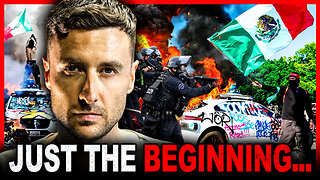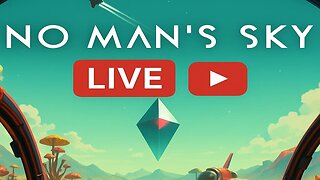Premium Only Content

Protest and indignation of Canadian truckers
Canada's "Freedom Convoy" began three weeks ago as truckers wanted to return home. And it began in Ottawa in protest against vaccination.
___________
Given that well over 80 percent of the truckers are vaccinated, what exactly are they protesting? As one reporter who talked to dozens of demonstrators put it, it's less about mandates per se and more about "a sense that things will never go back to normal, a sense that they are being ganged up on by the government, the media, Big Tech, Big Pharma."
The trucker protests remind me of the Tea Party in 2009, Occupy Wall Street in 2011, the Women's March in 2017, and Black Lives Matter protests after the police killings of Michael Brown in 2014 and George Floyd in 2020. Whatever specific event ignited each of those movements, they all quickly took on greater proportions and expressed a vast, generalized anger not simply at overspending, bailouts, income inequality, sexism, and police brutality but at governments and cultural elites that seems at best indifferent to ordinary people's lives and at worst downright malevolent.
These movements typify what former CIA analyst and current visiting fellow at the Mercatus Center Martin Gurri wrote about in The Revolt of the Public and the Crisis of Authority in the New Millennium. Governments and elites have lost the trust and confidence of the people they supposedly serve. Social media and other forms of communications empower protest movements that are authentic, decentralized, and leaderless, at least at the beginning. Such protests are much better at articulating rage and anger at the status quo than they are at proposing anything like concrete proposals for reform. As a result, contemporary protest movements tend to fizzle out after making a big entrance.
The Canadian Freedom Convoy will likely suffer a similar fate—and its American counterpart may never even materialize. Some of the other recent protest movements have been more successful in pushing an agenda, but all have lost urgency and effectiveness as they became more centralized or enmeshed with partisan politics. Just like the heads of the governments they were protesting, some leaders of Black Lives Matter, the Women's March, and Time's Up abused their power, lost their moral authority, and damaged their causes.
But that doesn't mean new protest movements don't matter. Far from it.
Even if they don't succeed at achieving their stated goals, they are blows against the status quo whose cumulative force will make governments and elites become more accountable to the very people they ultimately rely on. As with the collapse of communism, eventually there comes a tipping point where the seemingly impossible becomes the inevitable.
In a country where arbitrary COVID policies still run rampant; trust and confidence in government, business, and organized religion continues to fall; inflation is at a 40-year high; and just 17 percent of us are satisfied with the way things are going, expect new movements to keep rising up.
As a society, we're like the Marlon Brando character Johnny Strabler in The Wild One. "Hey Johnny," a woman asks him, "what are you rebelling against?" His laconic, iconic response: "Whaddya got?" We may not know the best way forward exactly but that won't stop us from pushing into the future.
Written by Nick Gillespie.
-
 LIVE
LIVE
Joe Donuts Live
2 hours ago🟢LIVE with the BOYS : Tales From The Gulag
98 watching -
 LIVE
LIVE
Boxin
3 hours agoToday We start Fable 2!
722 watching -
 25:23
25:23
The Connect: With Johnny Mitchell
1 day ago $2.08 earnedWhy They're Lying To You About The LA Riots, ICE Raids, & The Future Surveillance State
10.8K18 -
 2:38:44
2:38:44
The Charlie Kirk Show
11 hours agoLIVE: US Bombs Iran - Trump Speaking Soon
458K726 -
 58:03
58:03
FRENCHY4185
1 hour agoSPLITGATE 2 : PLAYING W/ FOLLOWERS
4.75K -
 LIVE
LIVE
bogebop
1 hour ago $0.27 earnedNo Man's Sky - LIVE -
118 watching -
 LIVE
LIVE
Lofi Girl
2 years agoSynthwave Radio 🌌 - beats to chill/game to
121 watching -
 58:11
58:11
Right Side Broadcasting Network
11 hours agoLIVE: President Trump Addresses the Nation Following U.S. Attack on Iran's Nuclear Sites - 6/21/25
351K246 -
 8:00:06
8:00:06
GamersErr0r
10 hours ago $0.15 earnedBig Mac Daddy Bronze King Slay | Marvel Rivals | Rank Terrorist
10K1 -
 2:32:47
2:32:47
Raginglumberjackv1
4 hours ago $0.25 earnedTake Back America Live steam
9.16K1